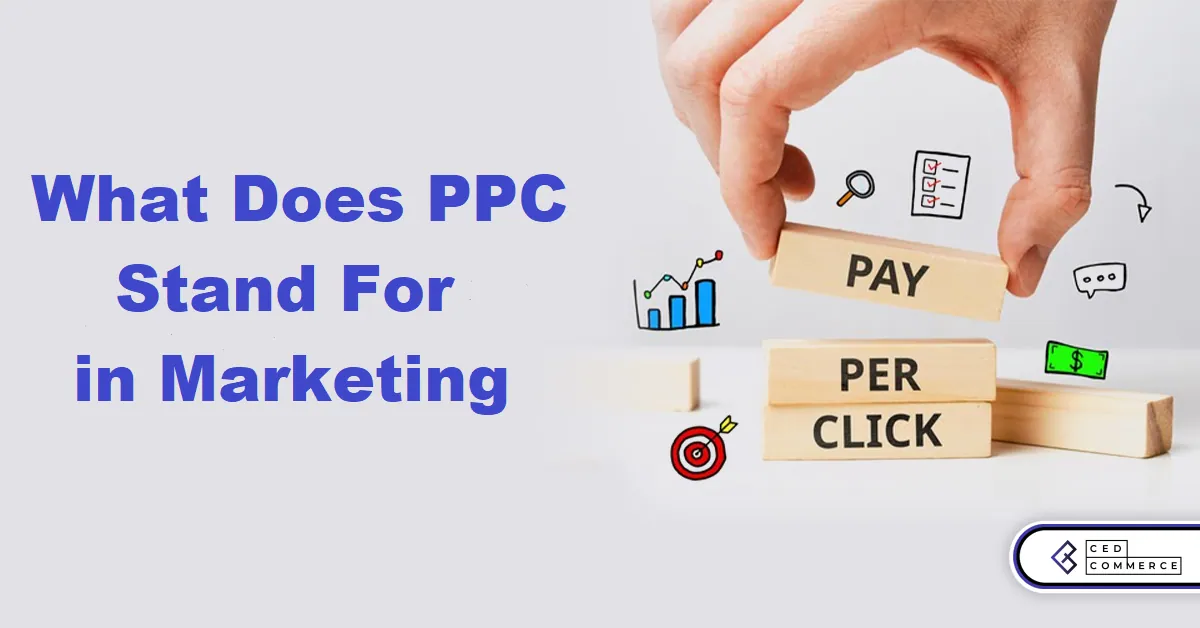What Does PPC Stand For in Marketing PPC stands for “pay-per-click,” a marketing method in which you pay websites and search engines to promote your website or items. PPC is an advertising model where you only pay when someone clicks on your advertisement, as you may have already inferred from the name. As a result, PPC is far more alluring than conventional types of advertising because you only have to spend when you see results. This is comparable, for illustration, to placing a billboard and paying the advertising agency only when a passerby who viewed the billboard enters your store.
What Does PPC Stand For
Free publicity is another important benefit of PPC. Increasing brand recognition with everyone who doesn’t click for free is made possible because you only pay when someone clicks. Even though they might not click this time, the very act of displaying your ad increases the likelihood that a searcher would do so in the future.
How Does PPC Work?
Paying search engines to show an advertisement next to or inside the search results (also known as the SERPs or Search Engine Results Pages) is the most well-known and efficient form of PPC advertising. These adverts have probably been included in your own search results, as well. If not, try performing a Google search for a service in your area and observing how the top results include the label “Ad.” These ads are PPC-based.
Why use PPC ads?
PPC advertising is popular because you only pay for customers who are interested in your business and who click your adverts.
- You just pay for ad clicks with online advertising, not for ad space, as with newspaper or billboard advertisements.
- For instance, if you provide chimney repair services, you may run a PPC campaign for chimney and masonry and only be charged when a specific user hits on your advertisement, saving you money on advertising expenses.
- If your campaign is time-sensitive and you want to attract attention, PPC advertising are a fantastic choice. Your PPC advertisements can significantly benefit your firm and aid in its online expansion.
Types of PPC ads
It’s time to discuss the many PPC ad types that are accessible to you now that we’ve discussed what PPC stands for. There are two main types of PPC ads you’ll want to learn about for your business. Learning about both can help you choose which kind (or both!) is best for your company because each type offers a distinctive experience.
How Pay-Per-Click Ads Work
You cannot just pay extra to have your PPC ad displayed above the competitors, unlike traditional types of advertising. You must instead bid against others for available advertising spaces utilising an automated mechanism called the Google Ads Auction. The following steps need to be evenly distributed in your PPC marketing campaign in order to successfully earn top ad slots in the SERPs:
Advertiser Sets up Campaign: The advertiser creates an advertising campaign and defines the goals, target audience, and budget. They select relevant keywords or audience demographics to target their ads effectively.
Bid on Keywords: In search engine advertising, advertisers bid on keywords relevant to their business or products. The bid represents the maximum amount they are willing to pay for a click on their ad. The higher the bid, the more likely the ad will be displayed in a prominent position.
Ad Rank: Advertisers’ bids and ad quality are considered to determine the ad rank. Ad quality is assessed based on factors like click-through rate (CTR), relevance of the ad to the search query, landing page quality, and historical performance.
Ad Display: Ads with higher ad ranks are more likely to be displayed in prominent positions, such as at the top of search engine results pages or on social media feeds. The ads are usually labeled as “sponsored” or “ad” to differentiate them from organic content.
Cost per Click (CPC): When a user clicks on an ad, the advertiser is charged a certain amount, which is the cost per click (CPC). The CPC can vary depending on the competitiveness of the keywords or the advertising platform. The actual amount charged is often slightly lower than the maximum bid set by the advertiser.
PPC advertising offers advertisers a way to reach their target audience directly, pay only for actual clicks, and track the success of their campaigns. It allows for precise targeting, immediate visibility, and the ability to control budget and optimize campaigns based on performance data.
Also Read:
